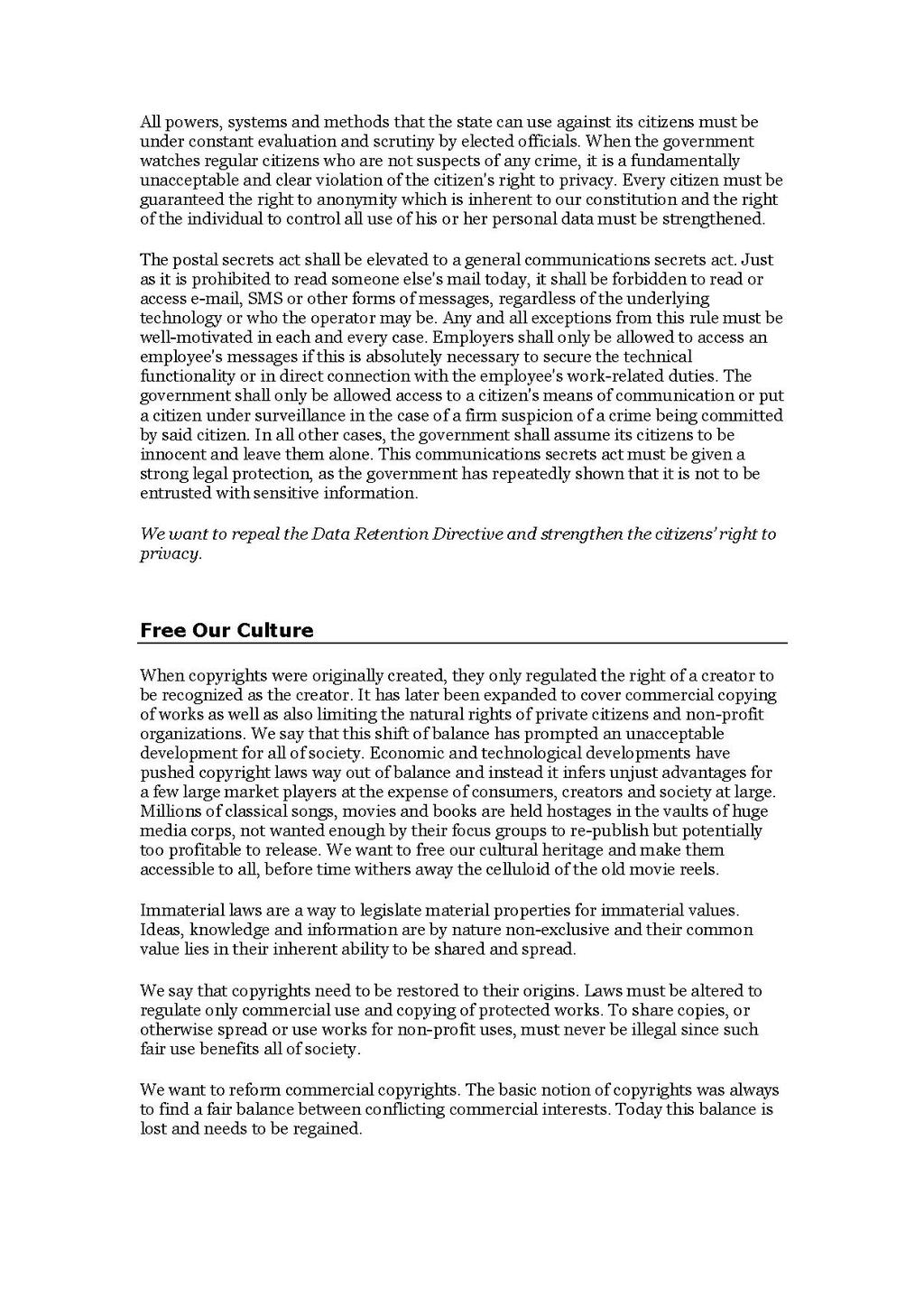All powers, systems and methods that the state can use against its citizens must be under constant evaluation and scrutiny by elected officials. When the government watches regular citizens who are not suspects of any crime, it is a fundamentally unacceptable and clear violation of the citizen's right to privacy. Every citizen must be guaranteed the right to anonymity which is inherent to our constitution and the right of the individual to control all use of his or her personal data must be strengthened.
The postal secrets act shall be elevated to a general communications secrets act. Just as it is prohibited to read someone else's mail today, it shall be forbidden to read or access e-mail, SMS or other forms of messages, regardless of the underlying technology or who the operator may be. Any and all exceptions from this rule must be well-motivated in each and every case. Employers shall only be allowed to access an employee's messages if this is absolutely necessary to secure the technical functionality or in direct connection with the employee's work-related duties. The government shall only be allowed access to a citizen's means of communication or put a citizen under surveillance in the case of a firm suspicion of a crime being committed by said citizen. In all other cases, the government shall assume its citizens to be innocent and leave them alone. This communications secrets act must be given a strong legal protection, as the government has repeatedly shown that it is not to be entrusted with sensitive information.
We want to repeal the Data Retention Directive and strengthen the citizens' right to privacy.
Free Our Culture
When copyrights were originally created, they only regulated the right of a creator to be recognized as the creator. It has later been expanded to cover commercial copying of works as well as also limiting the natural rights of private citizens and non-profit organizations. We say that this shift of balance has prompted an unacceptable development for all of society. Economic and technological developments have pushed copyright laws way out of balance and instead it infers unjust advantages for a few large market players at the expense of consumers, creators and society at large. Millions of classical songs, movies and books are held hostages in the vaults of huge media corps, not wanted enough by their focus groups to re-publish but potentially too profitable to release. We want to free our cultural heritage and make them accessible to all, before time withers away the celluloid of the old movie reels.
Immaterial laws are a way to legislate material properties for immaterial values. Ideas, knowledge and information are by nature non-exclusive and their common value lies in their inherent ability to be shared and spread.
We say that copyrights need to be restored to their origins. Laws must be altered to regulate only commercial use and copying of protected works. To share copies, or otherwise spread or use works for non-profit uses, must never be illegal since such fair use benefits all of society.
We want to reform commercial copyrights. The basic notion of copyrights was always to find a fair balance between conflicting commercial interests. Today this balance is lost and needs to be regained.
